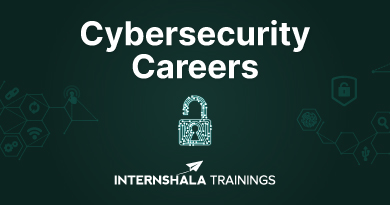IT in India: challenges and solutions for education and careers
Karthik Padmanabhan is the Country Manager for ISV and Developer Relations at IBM. Educated at the University of Mysore, he has been working in the IT industry for more than 20 years now, a period in which he has worked with Microsoft and Wipro among other companies. He talks about how IBM is helping students make an efficient leap from college to the industry and gives very helpful tips to the budding IT engineers of India.
1. India is producing ~1mn Engineering graduates every year of which >40% are from IT/Software Engineering alone. In your opinion and experience of 15+ years in IT industry, what are some of the biggest challenges that our college education system is facing today?
The biggest challenge is the lack of practical training. Most of our college education is based on rote learning, and this does not prepare students for a skill based job.
2. The unemployability of Indian youth is a much talked about term (with some reports indicating that as high as 80% of our graduates lack necessary skills to join the workforce). In your opinion where does the problem lie; soft skills or technical skills, and why? What could be possible solutions?
It is a mixed bag. The lack of soft skills is a big issue, in that many students are not able to communicate confidently and positively. More importantly, companies hire people for their attitude and pay them for their skills. The high emphasis on theory in college education leaves students completely unprepared for applying the knowledge acquired in college. Companies cannot afford to re-train people to fit job requirements.
IBM has launched various initiatives as solutions to these problems. We are empowering university graduates and working IT professionals in India/South Asia with knowledge and skills to serve the largest enterprise business software suite in the world. The IBM Career Education Program is a comprehensive software education program designed by IT professionals, for graduates and experienced professionals to accelerate their skills and knowledge so that they succeed in this dynamic industry. The Program curriculum brings together the latest software content, real-world industry experience, hands-on lab courses and best practices, all into a single unique education program. Project Praviin, for example, works towards equipping students with the skills to get hired, apart from regular training.
3. IBM has undertaken many such initiatives, including The Great Mind Challenge, Career Education, and IBM Centre of Excellence. What is the primary purpose behind these undertakings and what sort of impact is being seen?
At IBM we are constantly working on introducing innovative ways to bring about a revolutionary change to empower the student community. These programs are an initiative to prepare fresh graduates and aspiring professionals for today’s dynamic IT industry. The premise is to deliver relevant skills, education and guidance needed to embark on a successful global IT career. Companies prefer to hire students with some prior experience and training. These initiatives provide just that. It is also our way of giving back to the industry. Our focus is Tier II colleges, and the impact has been considerable. These are not just IBM initiatives: these are IBM-led initiatives for the industry. Numerous IBM partners participate in these programs and IBM certification turns out to be extremely useful to a student in this closed loop ecosystem of industries.
4. Are there any more similar initiatives that IBM has in the pipeline in the education/career space?
In the first week of June, we have an Industry Round Table Conference scheduled, where HR heads of recruiting industries give us feedback about our programs. We have Project Praviin which is for students in their 3rd semester. Project Praviin is aimed at bridging the gap between what is taught as part of curriculum in campuses and the real life situations business organizations encounter. Project Praviin also envisages building an ecosystem for Indian IT to thrive across Indian cities and towns. Project Praviin and the ecosystem built as a result, is expected to help India reap the benefits of the demographic advantage as well as help hundreds of Indian cities participate in the IT revolution.
5. While the industry struggles to meet the demand for a skilled workforce on one hand, on the other hand less than 15% out of 40% IT graduates from the total Engineering pool, take up or continue with a career in IT. What do you think are the reasons for people dropping out of a career in IT? Are there any steps that companies can/should take to bring the excitement back to the stream?
Firstly, the hype around IT no longer exists. Students must be sure that they genuinely like IT before they enroll in an IT course. It is about having the aptitude for IT, not about wanting the side benefits that come with an IT job. Companies want genuinely good people; thus students must make the most of every opportunity that comes their way, be it internships, training or projects in general.
6. Lastly, what would be the top three advices that you have to offer to the budding software/IT students of today on picking a career opportunity and ensuring professional success?
- Be confident that you are passionate about whichever IT subject you take up. If you feel no passion about the job content, you will not enjoy it.
- Get as much practical knowledge during college as you can, in the form of internships and training.
- Pay disproportionate interest to projects: academic excellence will only help you land an interview; it is your experience that will get you over the line.
If you have been considering a career in IT, we hope you found this useful.
Disclosure: Internshala is a marketing partner for IBM Career Education Projects.




